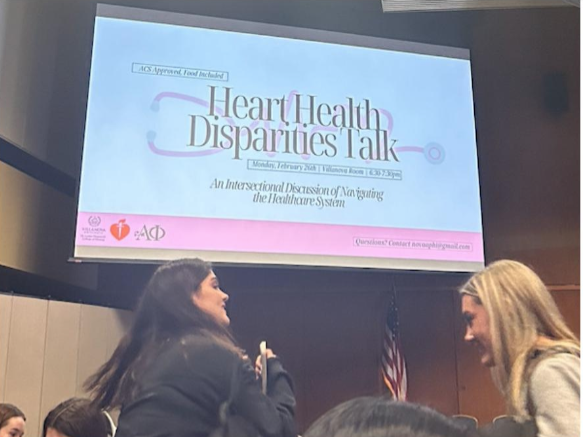
While most colleges and universities have required classes for incoming freshmen and transfer students, Villanova stands uniquely with its mandatory Augustine and Culture Seminar Program, known to all as ACS. Each student is required to complete the full-year course, which is comprised of ACS 1000 (Ancients) and ACS 1001 (Moderns). Students dive into the multi-layered aspects of the Augustinian tradition using texts from across the world, both ancient and modern. The classes are centered around reading, writing and seminar-style learning and taught by more than two dozen professors across campus.
Though it is a requirement, the necessity of the class is up for debate. Some students believe it to be a beneficial course, while others find it to be repetitive and irrelevant to their career paths. Because there are so many different staff members teaching the program, students do not read the same texts or learn the same lessons. The level of difficulty varies from section to section. While a mandatory introductory writing-based class is advantageous, I sometimes question the obligatoriness of the class.
Many people believe ACS is helpful for freshmen, as it helps them get used to the collegiate level of schooling. Sophia Saleeby, a freshman biology and Spanish double-major, noted the seminar-style classes offered at Villanova and thinks ACS is a great step in the first direction.
“I think it’s important to have some sort of required introductory freshmen course,” Saleeby said. “I think it helps us build college writing skills and learn how a seminar class works. Since most classes, and all of the core curriculum, at Villanova are more seminar-based, this is a good beginning class.”
Saleeby understood that most ACS classes differ on teacher and type.
“My Moderns class is reading different material and is catered towards the medical humanities,” she said. “Although the structure is the same, we are doing different things than the other Honors cohorts and non-honors classes.”
Other students think that ACS is too repetitive of other required classes. Madeline Nesbit, a sophomore history and criminology double-major on the pre-law track, believes the program to be unhelpful for her career path.
“ACS is a mix of theology, ethics and philosophy, so when students have to take all of these courses, it is a little redundant,” Nesbit said. “A pro of ACS being a required course is that students can ease into college-level writing expectations, but a con is that the course is not really necessary. ACS did not help me choose my major or career path, and I don’t see how it would help anyone unless they were interested in becoming a theologian or philosopher.”
I tend to believe that ACS should be a course that students can test out of. While I do think the class includes valuable material and introduces freshmen to the Augustinian tradition, the course is repetitive for students who completed advanced, seminar-style, college-level classes in high school. Many of the texts I have already read, and the fact it varies from professor to professor is unhelpful when introduced to the collegiate level of schooling. Moreover, both ACS 1000 and ACS 1001 require students to attend at least three “ACS approved” events per semester, which is extremely time-consuming when learning how to balance activities and manage one’s time in college. While I am a humanities student, I do not believe a full-year course to be necessary. I think that students should be offered different courses to become truly immersed in the college environment. Even though the majority of Villanova students find the ACS program to be taxing, many believe an introductory writing course to be necessary.


